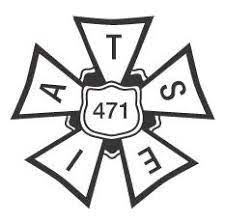
Last updated: May 29, 2024
Part 1
Koe
Composed by Yuta Sumiyoshi, dance arranged by Koki Miura (2021)
Miyake
Arranged by Kodo
Niwaka
Composed by Masayasu Maeda (2021)
Hae
Composed by Motofumi Yamaguchi (1982)
Uminari
Composed by Yuta Sumiyoshi (2021)
Part 2
Shinka
Composed by Koki Miura (2021)
Okoshi
Composed by Masayasu Maeda, dance arranged by Koki Miura (2021)
Dokuso
Composed by Reo Kitabayashi (2021)
Inochi
ComposedbyRyotaro Leo Ikenaga (2021)
O-daiko
Arranged by Kodo, Kenta Nakagome
Yatai-bayashi
Traditional, arranged by Kodo
The following pieces are based on these regional traditional performing arts:
Koe: Kanatsu-ryu Yanagawa Shishi Odori (Oshu, Iwate)
Miyake: Miyake-jima Kamitsuki Mikoshi Daiko (Miyake Island, Tokyo)
Okoshi: Onidaiko and Shishi (Sado Island, Niigata)
Yatai-bayashi: Chichibu Yatai-bayashi (Chichibu, Saitama)
Kodo's Home of Sado Island
Since 1971, Sado Island has been Kodo's home and the platform from which the group reaches out to the world. With nature's warm embrace evident in each of her four seasons, Sado is an extraordinary place where traditional ways of life and the island's indigenous performing arts still thrive today. This island is the fountain of inspiration for Kodo and the guiding force behind the group's creative lifestyle. Their goal is to find a harmonious balance between people and the natural world. Each time Kodo ventures off the island, the ensemble encounters new people, customs, and traditional performing arts that are ingrained in the lifestyles of each locale. Both similarities and differences prompt Kodo members to pause and reflect upon the importance of the varied and rich cultures that colour our world. These life lessons permeate each performer's skin and become an invisible source of their expression. It is through this process of Living, Learning, and Creating that Kodo cultivates a unique aesthetic and sensitivity, reaching out toward a new world culture rooted in the rich possibilities of a peaceful coexistence between humanity and nature.
Kodo Cultural Foundation
Thanks to the support of many friends, Kodo Cultural Foundation was established in 1997 in order to increase Kodo's capacity for outreach projects on Sado Island. Its primary mission is to carry out non-profit activities focused on social education and the notion of giving back to the local community. Kodo Cultural Foundation is committed to the cultural and environmental preservation of Sado Island and oversees many ambitious projects. From the conservation of local habitats to the revitalization of rare craft traditions and Noh theatres throughout Sado Island, the highly collaborative Foundation supports many vital initiatives. Its activities include holding workshops, planning annual music festival Earth Celebration, creating a research library, managing Kodo Apprentice Centre and Sado Island Taiko Centre, and carrying out research in the performing arts.
Kodo Apprentice Centre
In a converted schoolhouse in Kakinoura on Sado Island, the young people who will continue and expand on Kodo's traditions are trained, not just in musical technique but also in all matters of body and spirit. Beginning in April, apprentices live communally and train for two years. From this group, probationary members are selected in January of the second year. These chosen few spend one year as junior members, and if they are successful, they then become full Kodo members. Kodo seeks people of all backgrounds who are interested in becoming apprentices, as well as the next generation of Kodo players and staff. Apprentices live communally in the Kodo Apprentice Centre where they learn taiko, dance, song, and other traditional arts.
Artists

Exploring the limitless possibilities of the traditional Japanese drum, the taiko, Kodo is forging new directions for a vibrant living art-form. Since the group’s debut at the Berlin Festival in 1981, Kodo has given over 6,500 performances on all five continents, spending about a third of the year overseas, a third touring in Japan and a third rehearsing and preparing new material on Sado Island. Kodo strives to both preserve and re-interpret traditional Japanese performing arts. Beyond this, members on tours and research trips all over the globe have brought back to Sado a kaleidoscope of world music and experiences which now exerts a strong influence on the group's performances and compositions. Collaborations with other artists and composers extend right across the musical spectrum and Kodo's lack of preconceptions about its music continues to produce startling new fusion and forms.
Credits
Kodo Performers
Eiichi Saito
Kenta Nakagome
Jun Jidai
Koki Miura
Reo Kitabayashi
Masayasu Maeda
Kodai Yoshida
Seita Saegusa
Chie Yamawaki
Taiyo Onoda
Shun Takuma
Moe Niiyama
Jumpei Nonaka
Kazuma Hirosaki
Staff
Director
Yuichiro Funabashi
Music Advisor
Tatsuya Shimono
Voice Instructor
Yumi Nogami
Posture & Movement Instructor
Tatsuo Kudo
Lighting Designer
Kenichi Mashiko (S.L.S.)
Technical Director
Kei Olivier Furukata
Stage Manager
Takeshi Arai
Assistant Stage Manager
Yusuke Hayakawa
Production Manager
Yui Kamiya
Tour Managers
Sorami Ikeyama, Rena Tsukamoto
Assistant Manager
Donnie Keeton
Physical Trainer
Kiyoaki Sakai
International Tour Management
IMG Artists
Publicity
Soloshoe Communications, LLC
Photographer
Takashi Okamoto
Promotional Video Director
Sokichi Sogawa
Promotional Artwork
Hiroomi Hattori (COM Works)
Planning & Production Company
Kitamaesen Co., Ltd.
Special Thanks
Ranjo, Shingo Tokihiro, Kawachi Wakate, Rengebuji Temple, Kodo Cultural Foundation
Agency for Cultural Affairs, Government of Japan
-
Performance Sponsor

-
Official Car Partner

-
Official Hotel Partner


International Alliance of Theatrical Stage Employees